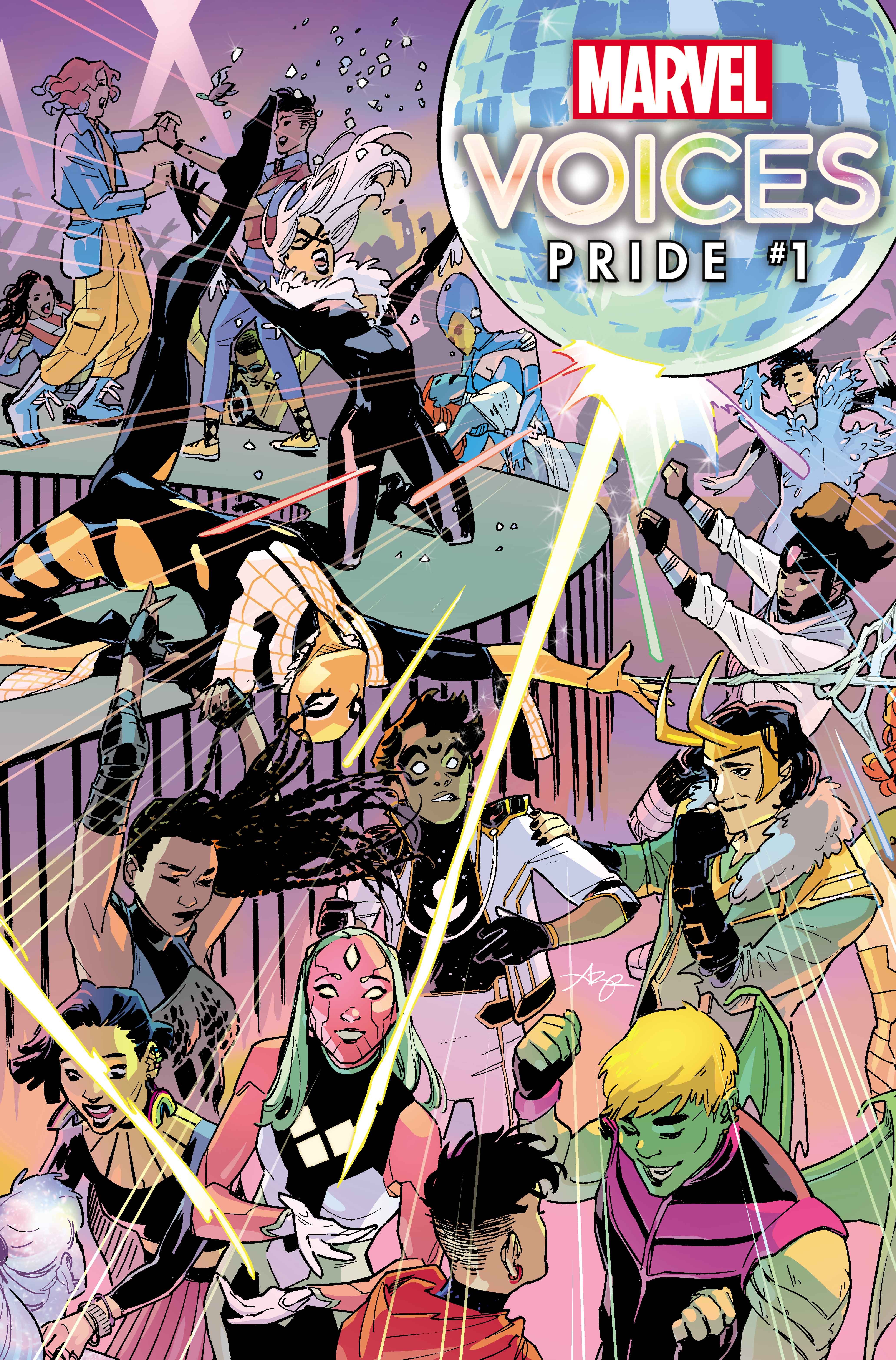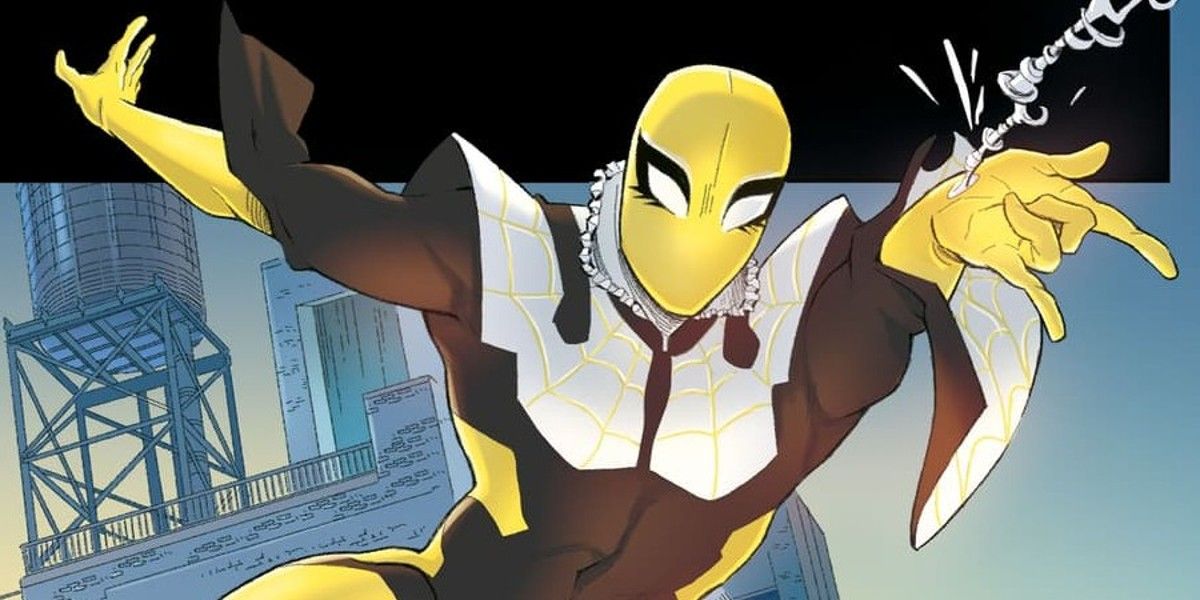Marvel Voices has released its annual Pride issue, a one-shot anthology celebrating queer voices and stories in the Marvel universe. Featuring creators like Shadi Petosky, Roberta Ingranata, Ceci De La Cruz, Sarah Gailey, Bailie Rosenlund, Rachelle Rosenberg, Stephen Byrne, Steve Foxe, Rosi Kämpe, Kelly Fitzpatrick and more, Marvel Voices: Pride #1 delivers some promising new characters and queer joy; although, many of the stories fail to feel like proper one-shots.
"What May Bloom," by Stephanie Williams, Héctor Barros, Oren Junior and Andrew Dalhous, is one of the short entries to introduce a new character -- and a legacy character at that. This short serves as an origin story for Logan's Nightshade. Williams and Barros have written someone with the power capacity to be a hero, but she's in an interesting point in her life where she is not ready to give up on the other important work she's done for a life of crime-fighting. Meanwhile, said powers pop off the page thanks to Dalhouse's iridescent purples and Junior's action sequences.
While promising, Nightshade is a legacy hero, and because of this, Williams and Barros have a lot of exposition to get across to audiences in regard to Nightshade's origin and her relationship to Tilda Johnson. To accomplish this, there's a lot of jumping back and forth over the span of years, throwing off the pacing and feeling more like a set-up than a stand-alone story. "What May Bloom" isn't the only origin story in Marvel Voices: Pride that suffers from this.
"No Trespassing; Beware of Dog," by H.E Edgmon, Lorenzo Susi and Kelly Fitzpatrick introduces Muzzle, who has the makings of a morally gray vigilante. Edgmon delivers an underdog who is easy to root for, one who fights for their community, even if it means going against the law. That, accompanied by Susi's Mortal Kombat-like character design and a literally rose-colored backstory, introduces Muzzle as a Spider-Man foe who explores a different side of heroism and vigilantism. However, much like "What May Bloom," telling an origin story in such a short amount of time feels rushed, with the writers having to tell more than they can show.
A story that feels more contained and doesn't rely on past knowledge is "Purim Spiel" by Katherine Locke, Joanna Estep and Manuel Puppo. Featuring Web-Weaver -- a Spider-Person -- "Purim Spiel" delivers a one and done adventure for Cooper, who's trying to help his Jewish community as Web-Weaver while balancing his dating life. It's a classic Spider-Man struggle, and Locke leans into this in a way that captures the heart of why so many Spider-Persons inspire readers. At the end of the day, Cooper has problems, but he still does the right thing. Meanwhile, the yellows of Web-Weaver and Cooper's respective outfits makes them pop off the page, especially when Estep illustrates his acrobatic prowess.
Another visually fun entry that screams Pride is "Everything's Coming Up Aces," a Gwenpool story by Marike Nijkamp, Pablo Collar and Michael Wiggam. The main selling point for this entry is the art, as Collar embraces the adorable, hyper-expressive elements of Gwenpool while Wiggam delivers on the vibrant colors one would expect at a Pride celebration.
"Everything's Coming Up Aces" is one of the more over the head entries in addressing its queerness, with Nijkamp treating the story like a PSA about asexuality narrated by Gwenpool. Because of this, Gwenpool feels less like a character and more like poster-child. While it's in character for her to break the fourth wall, there is a performative aspect to this story. For those who aren't exposed to a lot of queer culture or don't know a lot about the LGBTQIA+ community -- asexuality in particular -- "Everything's Coming Up Aces" serves its point, but it's still a surface-level, quick story as opposed to something more nuanced or engaging.
Each story in Marvel Voices: Pride is unapologetically queer, and many entries introduce new characters readers will want to see more of. However, this issue is not the best jumping in point for new readers with several stories rushing through origins or relying on past knowledge. On the other hand, Marvel Voices: Pride is direct enough to be a starting point for readers new to queer comics, and that seems to be who the target audience is. Many of the stories overcompensate by over explaining their queer elements and relying on buzzwords as opposed to trusting their readers. It's a celebration to say the least, one that offers a lot yet also leaves readers wanting more.



